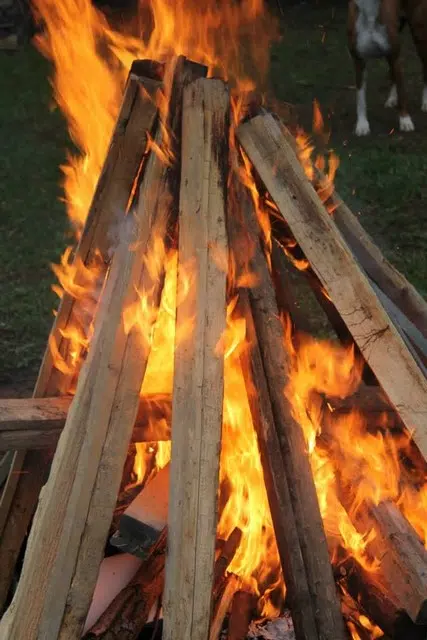The City of Pembroke continues to make ground on a revised recreation open-air burning by-law. Fire Chief Scott Selle recently proposed a number of options to the finance and administration committee. The feeling from council members is that they want to keep the permit system in place. Ian Kuehl says cost recovery has become the new norm.
Audio PlayerThe city currently issues 25 permits a year with most of these being renewals at a cost of $50. Mayor Ron Gervais says he like’s the idea, he just wants the new by-law to be highly regulated.
Audio PlayerThere is potential for increased costs due to responses caused by nuisance calls and complaints, although the staff report says most neighboring municipalities do not experience many complaint calls. Councilor Andrew Plummer says he’s always been in favor of reworking the by-law, but understands that not everyone will be happy with it.
Audio PlayerStaff are going to take the recommendations and come back with more updates for council to consider.
There are a number of similarities, as well as differences, between the reviewed by-laws:
1) The City of Kingston has addressed Ceremonial and Sacred Fires in their by-law. Toronto’s by-law was also researched in this respect as well. Kingston simply exempts
these fires and encourages organizers to contact the Kingston Fire Department before and after the fire. Toronto has a form in which organizers fill out and send to TFD for
acknowledgement.
2) The current by-law in use by the City of Pembroke is the only by-law that has geographical boundaries stipulating where residents can obtain a permit and have recreational outdoor fires. The City of Kingston employs two zones with certain types of fires permitted in each zone, however, some type of fire is permitted regardless of the zone in which the permit falls. Every other municipality reviewed, except Orillia, does not have such restrictions meaning permits are available to have a backyard recreational fire, as long as all requirements of the by-law are satisfied.
There are a multitude of options for Council to consider in moving forward. Some options are listed below:
1) Continue using the existing by-law. It is strongly recommended the current by-law be amended to incorporate wording covering Ceremonial and Sacred Fires. The Exemptions portion of the current bylaw should also be amended to reflect an updated list of cooking mediums. The wind speed should be specified under the “Dangerous Conditions” definition.
2) Move forward with Option #1 and include provisions for cost recovery due to failure to comply or contraventions of the by-law on the part of the permit holder, tenant, or
property owner. This cost recovery could be applied when responses require Fire Department resource deployment, upon the review of the Fire Chief. Currently, the permit
holder is liable for all damage caused as the result of the fire.
3) Remove the geographical barriers and make recreational burning available for all properties that meet the current setback requirements.
4) Set up zones in which specific types of fires would be permitted. For example, one zone could incorporate all current areas approved to have fires, allowing all types of
recreational fires, whereas other zones may only allow for use of appliances such as chimineas or smokeless fire appliances.
The committee is leaning towards going with option 3.
There were no instances of recreational backyard fires spreading beyond the fire container or pit leading to excessive damages reported by the municipalities reviewed.
(Written by: Kyle Robinson)
